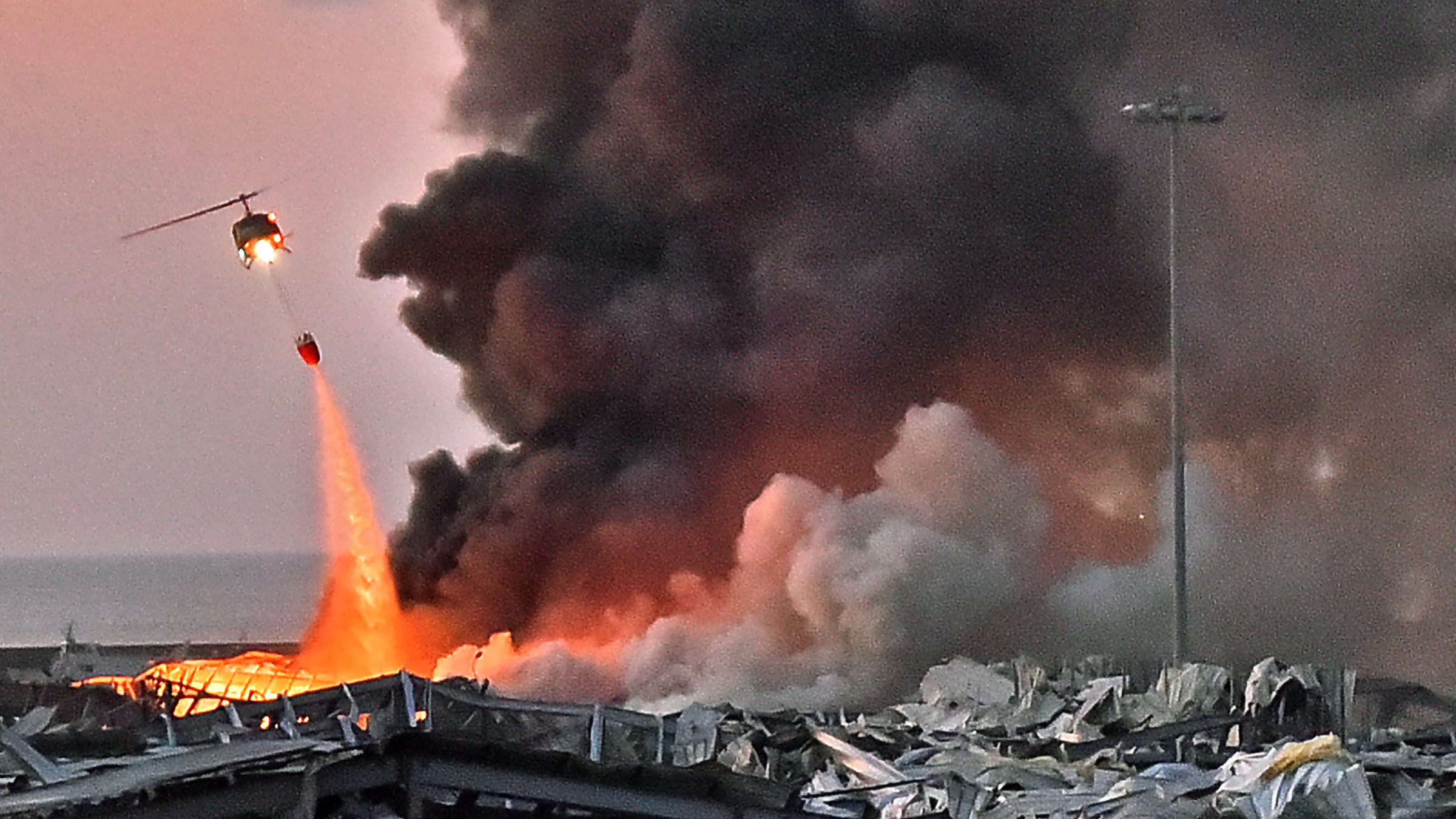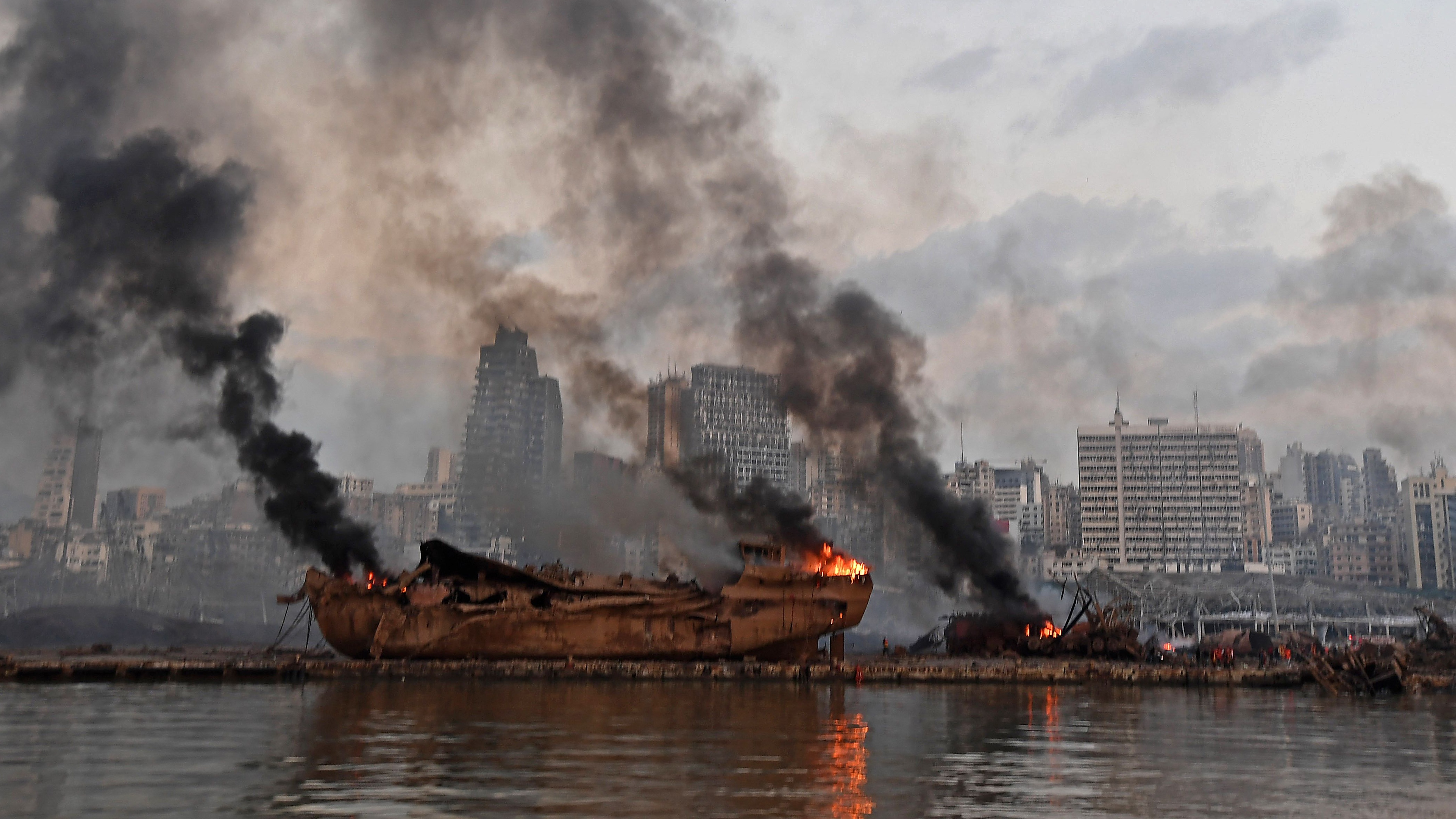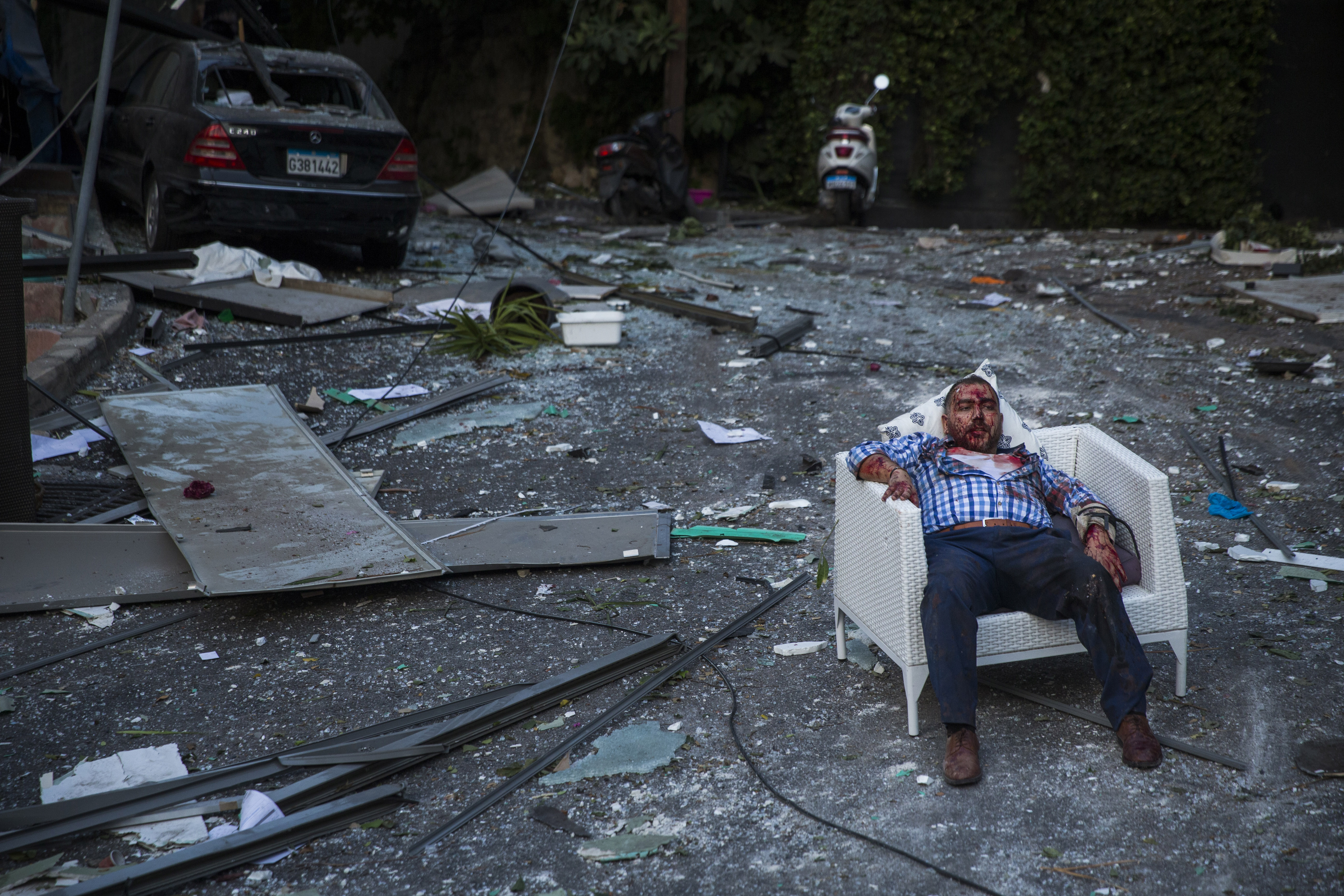Beirut chemical blast: did officials know the risks of an explosion?
Sources claim inspectors warned six months ago that fertiliser could ‘blow up all of Beirut’

A free daily email with the biggest news stories of the day – and the best features from TheWeek.com
You are now subscribed
Your newsletter sign-up was successful
Investigators probing the deadly blast that levelled parts of Beirut, killing more than 130 people and injuring thousands, have honed in on potential negligence in the storage of explosive fertiliser.
Several port officials have been placed under house arrest, as anger mounts against a “ruling elite that is being blamed for the chronic mismanagement and carelessness that led to the disaster”, Associated Press (AP) says.
The financial loss from the blast, the largest in Beirut’s war-torn history, is estimated to be between $10bn and $15bn, the city’s governor Marwan Abboud told Saudi-owned TV station Al-Hadath.
The Week
Escape your echo chamber. Get the facts behind the news, plus analysis from multiple perspectives.

Sign up for The Week's Free Newsletters
From our morning news briefing to a weekly Good News Newsletter, get the best of The Week delivered directly to your inbox.
From our morning news briefing to a weekly Good News Newsletter, get the best of The Week delivered directly to your inbox.
Where did the fertiliser come from?
Tuesday’s explosion was likely caused by the detonation of more than 2,700 tons of ammonium nitrate that had been stored at the dock since 2014, according to Lebanese Interior Minister Mohammed Fahmi.
Preliminary investigations have suggested a fire started by a welding accident may have ignited nearby fireworks, causing the chemicals to explode and sending shockwaves across the city.
How such a large quantity of fertiliser came to be stored at the port dates back to a businessman named Igor Grechushkin, “the Russian owner of the Rhosus ship, carrying the deadly cargo from Georgia to Mozambique”, The Telegraph reports.
A free daily email with the biggest news stories of the day – and the best features from TheWeek.com
In 2014, Grechushkin declared bankruptcy during an unscheduled stop in the city’s port, during which the “cargo ship was prevented from leaving port due to its poor state”, the paper adds.
Following his bankruptcy, the Russian abandoned the ship leaving the boat, the fertiliser and its crew stranded, according to a Lebanese law firm.

“Owing to the risks associated with retaining the ammonium nitrate on board the vessel, the port authorities discharged the cargo onto the port’s warehouses,” the firm Baroudi & Associates wrote in a 2015 article published on shiparrested.com.
“The vessel and cargo remain to date in port awaiting auctioning and/or proper disposal.”
Were officials warned about the danger?
Documents seen by Retuers show that Lebanese Customs asked the judiciary in both 2016 and 2017 to request that the “concerned maritime agency” either re-export or approve the sale of the ammonium nitrate.
One of the documents also cited similar requests in 2014 and 2015, the news agency adds.
“It is negligence,” an official source told Reuters, describing how the storage safety issue had been discussed in several committees and judges and “nothing was done”.
Lebanese port officials had “for years” called for the removal of the dangerous fertiliser, The Telegraph reports, citing “preliminary investigations”.
“The head of Beirut port and the head of customs both said on Wednesday that letters were sent to Lebanon’s judiciary asking for the removal of the nitrates”, the paper adds, “but no action was taken”.
Port general manager Hassan Koraytem told Indian cable news channel OTV the material had been “put in a warehouse on a court order”, adding that they were aware that the material was dangerous but “not to this degree”.
Badri Daher, director-general of Lebanese Customs, also told the Lebanese Broadcasting Corporation International (LBCI) that he too had requested it be “re-exported but that did not happen. We leave it to the experts and those concerned to determine why”.
A source close to a port employee told The Telegraph that a team had inspected the fertiliser six months ago, warning at the time that it could “blow up all of Beirut” if it was not removed.
A disaster ‘years in the making’
While the origins of Tuesday’s apocalyptic scenes can be traced back to the abandonment of the ship in 2014, “it’s hard to pinpoint exactly where it all went wrong for Lebanon,” writes The Telegraph’s Middle East correspondent Josie Ensor.
“Corruption and greed among its ruling class... had helped bleed the country dry,” Ensor says, with politicians not trying to hide it, but instead “simply blaming one another”.
“Constant spats between the competing religious sects over who would be awarded the spoils had left them virtually incapable of governing.”

The country is run with a culture of “negligence, incompetence, complacency, corruption [and] nepotism,” tweeted Lebanese architect and statist Karl Sharro. “This immoral and parasitical political class has destroyed Beirut and the whole country.”
This was echoed by Lebanese national Dyab Abou Jahjah, who wrote that what exploded on Tuesday was “not just ammonium nitrate”, but “corruption, mismanagement, incompetency and cynical disregard for the security and lives of people”.
As aid ships begin to roll in to Lebanon, including a £5m aid package from the UK, the rebuilding process will begin again for Beirut’s inhabitants.
But with 300,000 people now homeless amid a grueling economic crisis, “thousands in the Lebanese capital would have had a restless sleep in their dark, hot and windowless homes on Tuesday night,” Ensor says.
“The windows may have been knocked out by the blast, but the darkness was of the country’s own making,” she adds.
Joe Evans is the world news editor at TheWeek.co.uk. He joined the team in 2019 and held roles including deputy news editor and acting news editor before moving into his current position in early 2021. He is a regular panellist on The Week Unwrapped podcast, discussing politics and foreign affairs.
Before joining The Week, he worked as a freelance journalist covering the UK and Ireland for German newspapers and magazines. A series of features on Brexit and the Irish border got him nominated for the Hostwriter Prize in 2019. Prior to settling down in London, he lived and worked in Cambodia, where he ran communications for a non-governmental organisation and worked as a journalist covering Southeast Asia. He has a master’s degree in journalism from City, University of London, and before that studied English Literature at the University of Manchester.
-
 6 of the world’s most accessible destinations
6 of the world’s most accessible destinationsThe Week Recommends Experience all of Berlin, Singapore and Sydney
-
 How the FCC’s ‘equal time’ rule works
How the FCC’s ‘equal time’ rule worksIn the Spotlight The law is at the heart of the Colbert-CBS conflict
-
 What is the endgame in the DHS shutdown?
What is the endgame in the DHS shutdown?Today’s Big Question Democrats want to rein in ICE’s immigration crackdown
-
 Epstein files topple law CEO, roil UK government
Epstein files topple law CEO, roil UK governmentSpeed Read Peter Mandelson, Britain’s former ambassador to the US, is caught up in the scandal
-
 Iran and US prepare to meet after skirmishes
Iran and US prepare to meet after skirmishesSpeed Read The incident comes amid heightened tensions in the Middle East
-
 Israel retrieves final hostage’s body from Gaza
Israel retrieves final hostage’s body from GazaSpeed Read The 24-year-old police officer was killed during the initial Hamas attack
-
 China’s Xi targets top general in growing purge
China’s Xi targets top general in growing purgeSpeed Read Zhang Youxia is being investigated over ‘grave violations’ of the law
-
 Panama and Canada are negotiating over a crucial copper mine
Panama and Canada are negotiating over a crucial copper mineIn the Spotlight Panama is set to make a final decision on the mine this summer
-
 Why Greenland’s natural resources are nearly impossible to mine
Why Greenland’s natural resources are nearly impossible to mineThe Explainer The country’s natural landscape makes the task extremely difficult
-
 Iran cuts internet as protests escalate
Iran cuts internet as protests escalateSpeed Reada Government buildings across the country have been set on fire
-
 US nabs ‘shadow’ tanker claimed by Russia
US nabs ‘shadow’ tanker claimed by RussiaSpeed Read The ship was one of two vessels seized by the US military